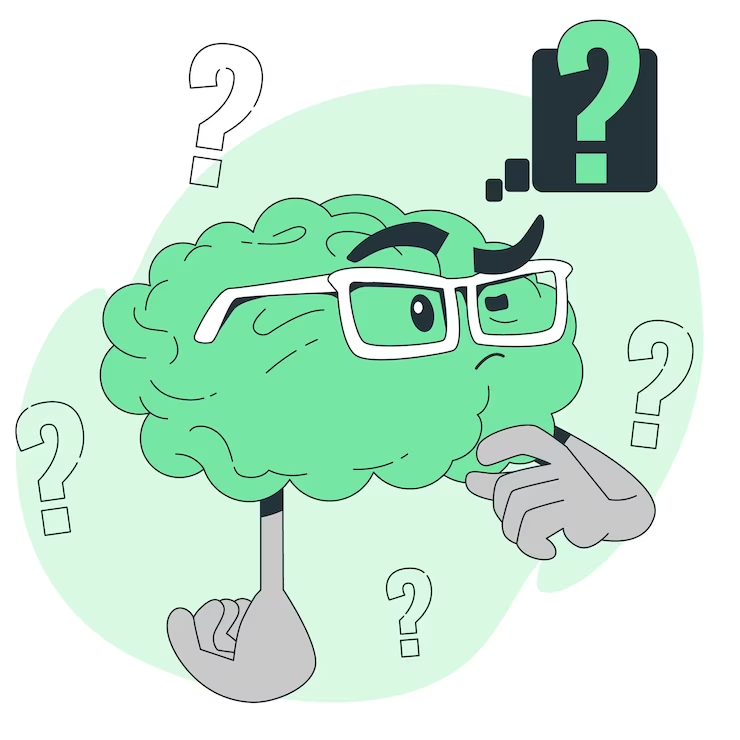Evolution and Behavioral Science in the Modern Age: Adaptation, Technology, and Lifestyle Modifications

Nature illustrations by Storyset
The genus of the human species Australopithecus was thought to have existed nearly 4 million years ago on Earth, and they occupied land in Africa, as found by the fossils that have been dug up by archaeologists. These species were all bipedal, meaning they walked on their feet and behaved and looked like what a human-ape crossbreed would look like, according to evolutionary scientists.
There is reason to believe that these species of humans did not hunt, as their dentition suggests that they were more herbivorous, like the apes who had flat dentition. They also lacked the sophistication to use tools for hunting, judging from what is known about their brain size. It is more likely that they did not participate in hunting.
Coming to the Genus Homo, particularly Homo erectus, which is thought to be the first species to be able to manage projectiles for hunting. The need for food and the need to survive through harsher times may have brought out this more humanoid form of human.
These early Homo genu were thought to have outcompeted the Australopithecus genus for resources, and this genus phased out of existence.
Plastic Brain

Nature illustrations by Storyset
The game of life has always been the survival of the fittest; it's just that fitness appears in so many forms these days that it is hard to keep track of.
One way to show this clearly is to keep a specific tool before two creatures and give them a problem that needs to be solved by the same two creatures, then turn on the timer to see how fast the creature can associate the tool with the problem and how fast they are able to solve the problem with the tool.
Nature, in some way, has been performing this experiment for millions of years, but in doing so, she kills off those who do not meet her requirements, and she does so without a care in this world. Just like she did with the human species, she has done with New Caledonian crows.
These birds that prey on insects within fruits have adapted to using sticks to interact with these insects. It is possible that there are no more New Caledonian crows that do not use sticks for hunting, as those that do would be the ones to die.
For humans in this modern day and age, it has become less tangible (even though tools are still a part of the story). The physical nature of adaptations has morphed to include ideas as well. Those who cannot effect change based on newly forming ideas will not survive.
It is also the case that ideas are passed down from generation to generation and affect behavior. Take bathing, for example. As common as bathing is today, in the West, it only became so popular in the 19th and 20th centuries. It took a while for it to become popular, and not bathing accounted for many deaths before it did. The chimney sweep (who were young British boys in the 17th century) often died because of the consequences of poor hygiene.
Behavior

Nature illustrations by Storyset
Many diseases that plague the human race are similar to those that took lives in the 17th century. Smoking is a prime example. Even with the large warning on cigarette packs about the short life expectancy, there are still those who smoke tobacco. Even with all the available knowledge about which food is good for you, there are still people who prefer consuming saturated fat because of the taste.
The incidence of heart disease continues to increase in low and medium-income countries. One would think that the world would pay attention to the experts and try to prevent themselves from being another statistic, but that doesn’t seem to be the case.
Behavioral science is such an important science because it explains and provides so much information for the constant K in every equation that involves human interaction.
In a way, behavioral science provides the best feedback for the rate of evolution in the current human species when related to other parameters like disease conditions, age, sex, and race.
New Technology

Nature illustrations by Storyset
In the older population, it is very evident. New technology comes out, and some older people do not want to use it. Sometimes it is something that will affect their business or their livelihood, and as the years go by, they continue to lose customers.
Yet again, Homo erectus has picked up an arrow, and the other species have stayed confused.
The new age is that of Artificial Intelligence. Some people fear experimentation, and others are simply too lazy to try it. It is the weirdest response I keep seeing.
When cars were first created at the turn of the 20th century, there were those who were afraid of them because of safety concerns. Cars could easily be hazardous, and the design was not as standard as it is now, as cars did not have seat belts and airbags.
Some were afraid of the cultural significance of having these iron contraptions replacing bicycles and horses. Some feared that cars would promote individualism and make people more isolated.
These concerns were not far from the truth, as cars have caused a lot of deaths, replaced horses, and made people more isolated than they were in the past.
But the utility of a car outweighs its downsides.
What's next? What will humans evolve into next? Which species will become extinct? How do we prevent deaths that can be prevented by lifestyle modifications? How do we encourage people to use the tools available to them?
Conclusion
In conclusion, the evolution of humans has been driven by the need for survival and the ability to adapt to changing circumstances. From Australopithecus to Homo erectus to modern-day humans, the ability to use tools and develop new ideas has been crucial for our survival.
The role of behavior, both in terms of individual choices and societal norms, has also played a significant role in shaping human evolution. As we move into the age of Artificial Intelligence and new technologies, it is important to embrace change and utilize the tools available to us for the betterment of our species.
The future of human evolution is uncertain, but by learning from our past and present, we can strive to create a better future.
What are your thoughts on the theory of evolution and how it has affected the development of the human species over time? How do you think humans will continue to evolve in the future, and what factors do you think will influence this evolution?
*What do you think about the role of technology in human evolution, and how has it affected our behavior and survival as a species?

The advancement and evolving nature of man should be studied intensely, it is beautiful to know how well we are growing and how well we will continue to grow and advance in both knowledge and skill.
It truly is...we hope that as we advance through time we will also continue to learn to adopt advanced behaviour
Thanks for your contribution to the STEMsocial community. Feel free to join us on discord to get to know the rest of us!
Please consider delegating to the @stemsocial account (85% of the curation rewards are returned).
You may also include @stemsocial as a beneficiary of the rewards of this post to get a stronger support.